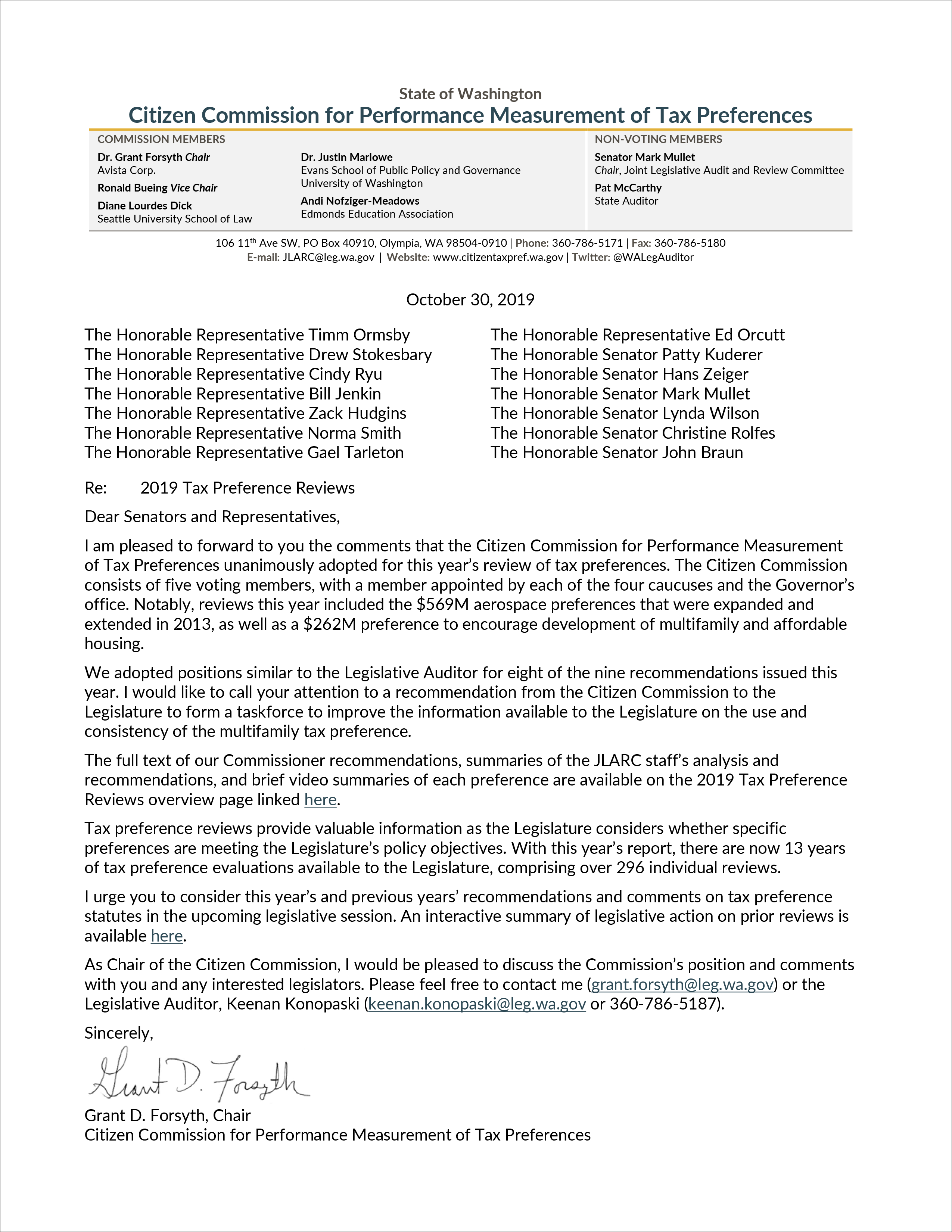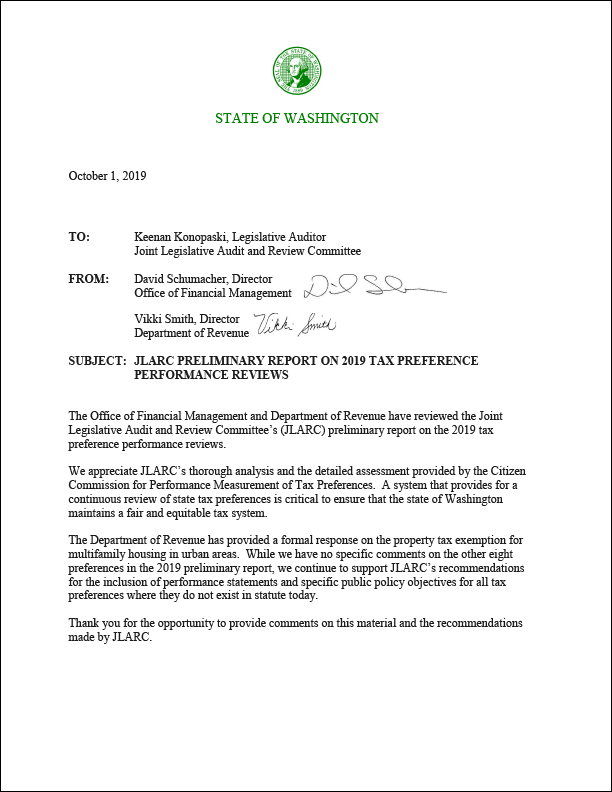In 2014, the Legislative Auditor found no businesses were claiming the tax preference and recommended termination
The Legislature stated two public policy objectives when it enacted the tax preference in 1996. The preference was part of a larger bill that addressed machinery and equipment used in research, development, and testing. The objectives applied to all exemptions in the bill.
JLARC staff reviewed the preference in 2014. Because the review found no businesses were claiming the tax preference, the Legislative Auditor recommended that the Legislature terminate the preference as it had not contributed to the stated public policy objectives.
| Objectives (Stated) | 2014 JLARC Review Results |
|---|---|
| Encourage, develop, and expand opportunities for family wage employment in manufacturing industries. | No businesses claim the tax preference. |
| Solidify and enhance the state’s competitive position. |
With no legislative changes to the preference and no beneficiaries, the Legislative Auditor's 2014 conclusions and recommendations remain applicable
No substantive legislative changes. Since 2014, three bills have proposed broad changes to all tax preferences. While each bill would have affected this preference, none included provisions specific to it. None of the bills passed.
No businesses claim the preference. Beneficiaries must pay the sales or use tax and then apply for a refund from DOR. This process allows DOR to track the number of firms that claim the exemption. DOR reports that there have been no requests for refunds, and thus, no beneficiaries. Efforts to reach two Washington companies that supported the legislation to create the preference in 1996 were unsuccessful. In 2014 these same companies indicated they were not claiming the preference.
Recommendations
Legislative Auditor's Recommendation: Terminate
The Legislature should terminate the sales and use tax exemption for prototypes for aircraft parts, auxiliary equipment, and modifications because the tax preference is not being used and has not contributed to the stated public policy objectives.
The Legislature may wish to consider other strategies beyond this tax incentive to accomplish the public policy objectives.
More information is available on the Recommendations Tab.
Commissioners' Recommendation
The Commission endorses the Legislative Auditor's recommendation without comment.





